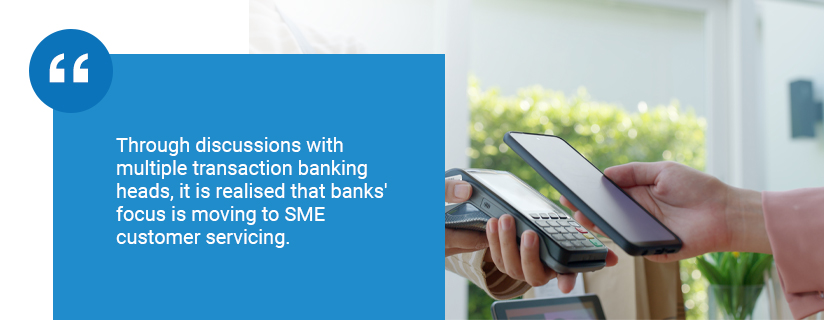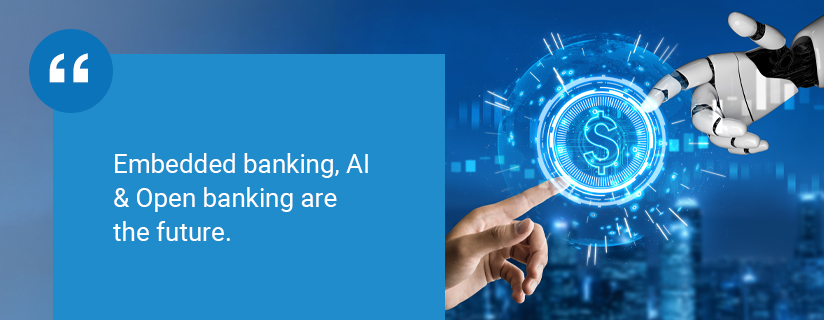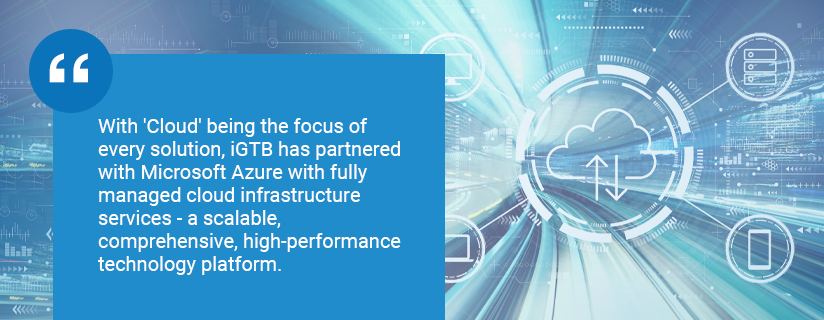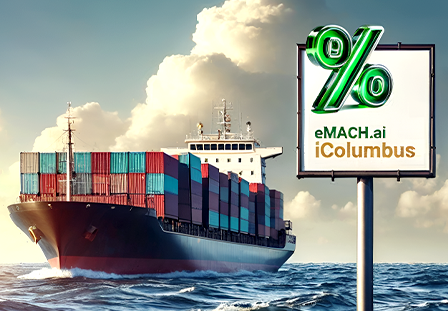- What we do
-
-
-
-
"Intellect’s continued dominance at the IBSi Sales League Table underscores its pioneering role in the fintech industry. Their commitment to innovation, exemplified by the groundbreaking eMACH.ai platform, continues to set a high benchmark in Retail Core Banking, Transaction Banking, and Lending. Intellect’s solutions are not only reshaping the present landscape but are also poised to lead the evolution of financial services globally, driving unprecedented advancements and customer-centric solutions."

Robin Amlôt
Managing Editor at IBS Intelligence
-
-
-
- Company
-
-
-
-
"Intellect’s continued dominance at the IBSi Sales League Table underscores its pioneering role in the fintech industry. Their commitment to innovation, exemplified by the groundbreaking eMACH.ai platform, continues to set a high benchmark in Retail Core Banking, Transaction Banking, and Lending. Intellect’s solutions are not only reshaping the present landscape but are also poised to lead the evolution of financial services globally, driving unprecedented advancements and customer-centric solutions."

Robin Amlôt
Managing Editor at IBS Intelligence
-
-
-
- Knowledge
-
- Our Events
- Contact Us
Africa Roundtable Event
Learn More News FlashiGTB Pulse Newsletter May 2025
Learn More News FlashHighlights of iGTB at EBAday 2025
Learn More News FlashEnhancing Corporate Payment Efficiency with SWIFT GPI Tracker powered by eMACH.ai
Learn More News FlashEmpower Digital Payments: KPI-Driven Payments with Self-Service Intelligence
Read More News FlashUnlocking Africa’s Trade Finance Potential: Driving Growth Through Digital Innovation
Read More


How to become the Principal Bank for your Corporate Customers?
Deepa spent more than 20 years in the transaction banking space with iGTB and has been intensely associated with the Middle East and African markets for more than 13 years now.
It’s time to change the game for your Corporate & SME clients with iGTB’s Digital Transaction Banking (DTB). Through this blog you’ll learn about
• Current key trends in the transaction banking space
• Factors influencing the future of banking
• Capabilities and Accelerators that power DTB
• Key differentiators of DTB
• What’s new for 2023 in DTB
The transaction banking market in the Middle East is a rapidly growing industry, driven by increasing economic activity and globalization. The region’s banking sector is characterized by a high degree of competition, with both local and international banks vying for market share. As the region continues to develop and diversify its economy, the transaction banking market is likely to remain a key driver of growth and innovation in the years to come. Due to the acceleration of digital change, many banks are motivated to seize the momentum and leverage financial technology to introduce customer-centric digital services as we see with many new uprising digital banks across the region.
The past few years have witnessed significant changes in how the digital world operates, thanks to the Pandemic, and it has also given us a vision for transformation. Digital transaction banking transformations have become an integral part of banks by helping them understand the best practices and identifying their gaps vis-a-vis competition banks in the country region as well as globally.
The future of banking in the Middle East is likely to be shaped by several factors, including the continued adoption of technology and digital transformation, increased focus on financial inclusion and accessibility, and growing demand for innovative financial products and services. Additionally, factors such as regulatory changes and geopolitical dynamics are also likely to play a role in shaping the banking landscape in the region

Through discussions with multiple transaction banking heads, it is realised that banks’ focus is moving to SME customer servicing. Especially with the large banks in the Middle East and Africa, the Banks want to deliver a seamless digital transaction banking platform that’s easy to navigate but goes beyond the offerings of conventional online banking. SME customers now want a more immersive experience in banking. That’s where mobility and access to multiple on-the-go devices become imperative. Banks can increase revenues, reduce costs and protect their lending business while enabling multiple channels like ‘Mobile Banking’ for formerly underserved SME customers.
However, the bigger question is, how does a bank seamlessly implement all of these solutions?
Digital Transaction Banking (DTB) from Intellect Global Transaction Banking(iGTB) is an integrated platform that prepares transaction banks to provide for every client and every sector’s needs. This configurable and intelligent platform captures every aspect of transaction banking, covering the working capital cycle from accounts services, virtual accounts, liquidity management, collections & receivables, payments, and trade finance to supply chain finance. All in one place, from the same integrated solution across industries, segments, countries and more.
eMACH.ai, the most comprehensive, composable and contextual open finance platform has providing the guiding architecture principles of banking ecosystem design for DTB – Architecture simplicity, Base eMACH.ai (Microservices, API, Cloud and Headless), Composability, Data, Embedded AI and Flexible & Extensible.

Digital transformation practices like payment modernisation are of key importance in the market Trade finance services, such as letters of credit and trade finance loans, are also in high demand, particularly in industries such as oil and gas, construction, and manufacturing. Technologies are, in fact, shaping the future of banking. SME business is critical for banks today. Embedded banking, AI & Open banking are the future. These trends are driving changes in the transaction banking space.
So what powers the DTB offering?
iGTB’s DTB solution is enabled by four underlying capabilities that empower the five magic accelerators.
The capabilities are:
• API-first microservices architecture built for the cloud
• Contextual Smart Banking solution
• Unique multi-domain single integrated platform for cash
• Flexible Revenue Modelling
These capabilities form the basis for the five accelerators, which are:
• Pay-as-you-grow model – A fully managed end-to-end cloud service for Transaction Banking by iGTB for Banks.
• Open API – Corporate Banking Open APIs to facilitate seamless finance ecosystem integration
• Analytics & Dashboard – Decision-making capabilities for Corporates
• Market-ready user journeys across domains – Integrated end-to-end User Stories and Journeys across Payments, Collections, Virtual Accounts, Liquidity & Trade & SCF.
• Improved operational efficiency – Make more money and retain/acquire more customers
These accelerators have transformed iGTB’s DTB solution into a one-of-a-kind, one-stop-all solution that caters to all needs of a bank. Some of the key differentiators of the platform include:
• Corporate Health Dashboard – Persona-based dashboard
• Segment-based differentiated banking with a focus on SMEs
• Fast onboarding with Self onboarding
• Payment Rails implemented across the globe with regulatory and domestic payments being taken care of
• Industry agnostic solution supporting airline, insurance, education, real estate, retail, MNC’s, oil & gas, manufacturing sectors allowing banks to acquire more.
• Multiplier Effect – Multi-country, Multi-entity, Multi-currency, Multi-channel solution enabled for Multi-domains
• Open banking APIs – Corporate Banking Open APIs to facilitate seamless finance ecosystem integration – Using iTurmeric

With ‘Cloud’ being the focus of every solution, iGTB has partnered with Microsoft Azure with fully managed cloud infrastructure services – a scalable, comprehensive, high-performance technology platform. iGTB is, of course, cloud agnostic and has deployments across other cloud providers like AWS, Oracle Cloud, and IBM Cloud as well.
The future is Cloud; The future is the iGTB Cloud.
Some of the latest features added to this one-stop DTB solution in 2023 are:
• The self-onboarding tool facilitates digital channel onboarding through the bank portal without the need to visit the branch for registration.
• 360-degree view into real-time balances of the SME business accounts, deposits, loans, cards and working capital status
• Shorten the receivables cycle by a collection of payments through a range of SME-specific collection solutions using virtual accounts COBO
• Personalized dashboard for user based on his Role
• Paperless trade with AI based smart data capture and compliance for Trade processing
Conclusion:
With DTB, transaction banks have successfully optimised capital, maximised ROA and fee income, and improved product cross-sell & distribution channel effectiveness. The DTB solution is already supporting SME franchise and growth sectors (through working capital provisioning and advisory services) and ensuring full regulatory compliance for the large to very large corporates and MNCs, addressing various customer segments & industries, whether SME/Corporate/Government or Fintech across industries including insurance commerce logistics and more.
More than 60 global banking groups benefit from this world-leading solution which handles close to 50% of the total corporate collections’ transactions across India, Africa, the Middle East & APAC. The DTB solution provides banks with the path to achieving their goal of becoming a principal bank in the shortest possible way.
Deepa spent more than 20 years in the transaction banking space with iGTB and has been intensely associated with the Middle East and African markets for more than 13 years now.





























